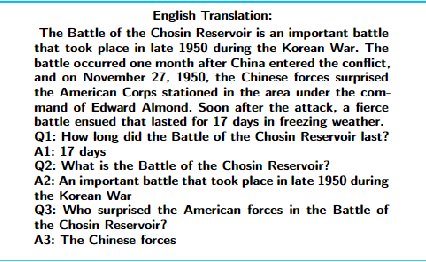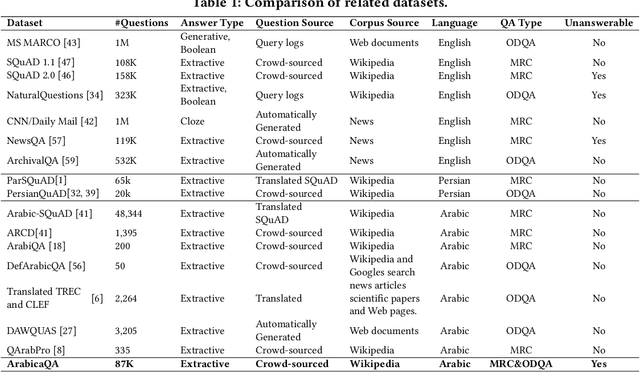Mohamed Elkasaby
CORU: Comprehensive Post-OCR Parsing and Receipt Understanding Dataset
Jun 06, 2024



Abstract:In the fields of Optical Character Recognition (OCR) and Natural Language Processing (NLP), integrating multilingual capabilities remains a critical challenge, especially when considering languages with complex scripts such as Arabic. This paper introduces the Comprehensive Post-OCR Parsing and Receipt Understanding Dataset (CORU), a novel dataset specifically designed to enhance OCR and information extraction from receipts in multilingual contexts involving Arabic and English. CORU consists of over 20,000 annotated receipts from diverse retail settings, including supermarkets and clothing stores, alongside 30,000 annotated images for OCR that were utilized to recognize each detected line, and 10,000 items annotated for detailed information extraction. These annotations capture essential details such as merchant names, item descriptions, total prices, receipt numbers, and dates. They are structured to support three primary computational tasks: object detection, OCR, and information extraction. We establish the baseline performance for a range of models on CORU to evaluate the effectiveness of traditional methods, like Tesseract OCR, and more advanced neural network-based approaches. These baselines are crucial for processing the complex and noisy document layouts typical of real-world receipts and for advancing the state of automated multilingual document processing. Our datasets are publicly accessible (https://github.com/Update-For-Integrated-Business-AI/CORU).
ArabicaQA: A Comprehensive Dataset for Arabic Question Answering
Mar 26, 2024



Abstract:In this paper, we address the significant gap in Arabic natural language processing (NLP) resources by introducing ArabicaQA, the first large-scale dataset for machine reading comprehension and open-domain question answering in Arabic. This comprehensive dataset, consisting of 89,095 answerable and 3,701 unanswerable questions created by crowdworkers to look similar to answerable ones, along with additional labels of open-domain questions marks a crucial advancement in Arabic NLP resources. We also present AraDPR, the first dense passage retrieval model trained on the Arabic Wikipedia corpus, specifically designed to tackle the unique challenges of Arabic text retrieval. Furthermore, our study includes extensive benchmarking of large language models (LLMs) for Arabic question answering, critically evaluating their performance in the Arabic language context. In conclusion, ArabicaQA, AraDPR, and the benchmarking of LLMs in Arabic question answering offer significant advancements in the field of Arabic NLP. The dataset and code are publicly accessible for further research https://github.com/DataScienceUIBK/ArabicaQA.
AMuRD: Annotated Multilingual Receipts Dataset for Cross-lingual Key Information Extraction and Classification
Sep 18, 2023Abstract:Key information extraction involves recognizing and extracting text from scanned receipts, enabling retrieval of essential content, and organizing it into structured documents. This paper presents a novel multilingual dataset for receipt extraction, addressing key challenges in information extraction and item classification. The dataset comprises $47,720$ samples, including annotations for item names, attributes like (price, brand, etc.), and classification into $44$ product categories. We introduce the InstructLLaMA approach, achieving an F1 score of $0.76$ and an accuracy of $0.68$ for key information extraction and item classification. We provide code, datasets, and checkpoints.\footnote{\url{https://github.com/Update-For-Integrated-Business-AI/AMuRD}}.
 Add to Chrome
Add to Chrome Add to Firefox
Add to Firefox Add to Edge
Add to Edge